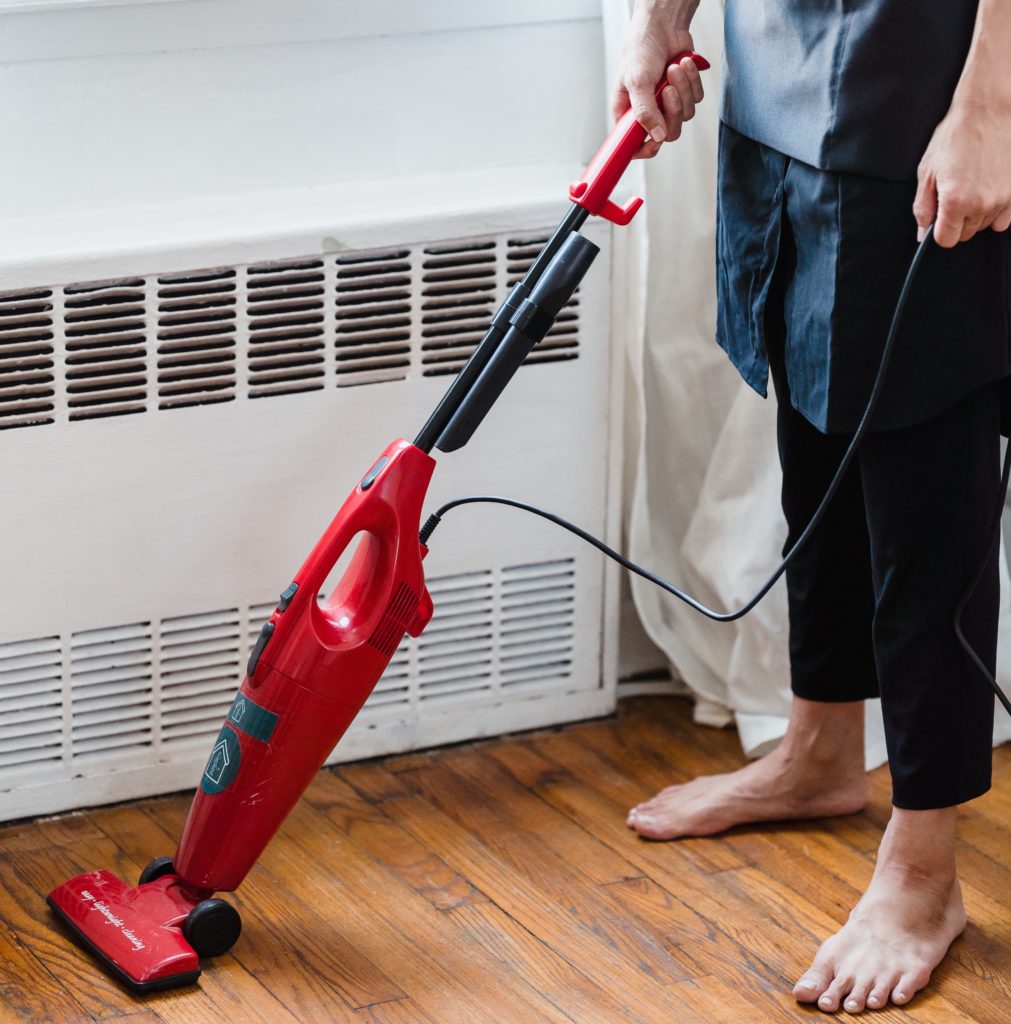Learning how to speak about everyday activities is one of the main objectives of acquiring any language. That’s why today we are going to learn how to talk about household chores in Spanish.
We know that house chores are boring but at the same time, they are an unavoidable part of life. And someone has to do them! Hence, knowing how to speak about chores in Spanish is a must.
We’ll start by considering different ways that we refer to our chores in Spanish, then we’ll move on to introduce the essential vocabulary related to the whole chores universe. Finally, we’ll go over a bunch of useful phrases you’ll surely use when talking about your household tasks in Spanish.
For now, let’s get started and tackle our language tasks!
Ways of Saying “Chores” in Spanish
For the simple English word chore, we can use the Spanish la tarea rutinaria, la faena, or el quehacer. We can also find for household chores, las tareas domésticas, and for house chores, las tareas de la casa. Some people will simply talk about las cosas de la casa.
- I can’t go to the cinema this afternoon, I have to do my chores. – No puedo ir al cine esta tarde, tengo que hacer la faena.
- I asked my children to help me with some household chores. – Les pedí a mis hijos ayuda con algunas tareas domésticas.
- The boys must do the house chores twice a week. – Los chicos deben hacer las tareas de la casa dos veces por semana.
Chores in Spanish: All the Vocabulary You Need
In this section we’ll cover all the main vocabulary for talking about doing chores in Spanish. Going from big to small, we’ll start with the different parts of the house, then we’ll zoom in to the specific objects that we take care of, we’ll cover the different tools we use for our different chores, and finally we’ll go over the different tasks themselves.
Rooms of the house in Spanish
Let’s start off learning how to refer to all the different areas of the house.
| English | Spanish |
| The hallway | El recibidor, El vestíbulo |
| The living room | El salón |
| The kitchen | La cocina |
| The dining room | El comedor |
| The bedroom | El dormitorio |
| The bathroom | El baño |
| The home office, The studio | El espacio de trabajo |
| The laundry | El lavadero |
| The garden | El jardín |
| The backyard | El patio |
| The garage | El garaje |
| The pool | La piscina |
- The cleaning staff has to vacuum the living room every day. – El personal de limpieza tiene que pasar la aspiradora en el salón todos los días.
- The kitchen must be the cleanest place of a house. – La cocina debe ser el lugar más limpio de una casa.
Household objects that need our attention
Now that we can refer to different places of the house where we normally carry out our chores, let’s narrow the scope and learn some vocab related to the different household objects that are generally the focus of our efforts.
| English | Spanish |
| Door | La puerta |
| Window | La ventana |
| Floor | El suelo, El piso |
| Glass | El vidrio |
| Bed | La cama |
| Toilet | El inodoro |
| Bathroom sink | El fregadero del baño |
| Kitchen | La cocina |
| Dishes | Los platos |
| Table | La mesa |
| Display cabinet | El aparador, El escaparate |
| Kitchen cabinet | El armario de cocina |
| Furniture | Los muebles |
| Wardrobe | El armario, El ropero |
| Clothes | La ropa |
| Lawn | El césped, El pasto |
| Plants | Las plantas |
| Trash | La basura |
- I have a lot of dirty clothes in my wardrobe. – Tengo mucha ropa sucia en el armario.
- The glass panes of those windows should be shiny. – Los vidrios de aquellas ventanas deben estar brillantes.
Cleaning supplies and equipment
So far so good! Now that we can talk about the different rooms in the house, and the specific objects that need attention, it’s time to learn how to refer to equipment and cleaning supplies in Spanish.
| English | Spanish |
| Broom | La escoba |
| Dustpan | La pala |
| Dust cloth | La franela, El trapo del polvo |
| Iron | La plancha |
| Carpet sweeper | El barre alfombra |
| Vacuum cleaner | La aspiradora |
| Robot vacuum | El robot aspirador |
| Washing machine | La lavadora |
| Dust mop | La mopa plana |
| Sponge | La esponja |
| Bucket | El balde |
| Floor mop | El trapeador |
| Laundry detergent | El detergente para ropa |
| Detergent | El detergente |
| Window cleaner | El limpiavidrios |
| Bleach | La lejía |
| Furniture polish | El limpiador de muebles |
| Cloth | El trapo, El paño |
| Paper towels | Las toallas de papel |
| Clothesline | La cuerda para colgar ropa |
| Clothespins | Los broches para ropa, Los ganchos para ropa |
- Please, clean the furniture using a soft cloth. – Por favor, limpia los muebles con un paño suave.
- Don’t forget to wash the dishes with the red sponge and the green detergent. – No olvides lavar los platos con la esponja roja y el detergente verde.
A list of chores in Spanish
Now that we’ve gone into places, objects, and supplies in detail, it’s high time we dive into the chores themselves!
| English | Spanish |
| To wash the clothes, To do laundry | Lavar la ropa |
| To hang the clothes | Colgar la ropa |
| To dry the clothes | Secar la ropa |
| To iron the clothes | Planchar la ropa |
| To fold the clothes | Doblar la ropa |
| To wash the dishes | Lavar los platos |
| To sweep the floor | Barrer el piso |
| To clean the windows | Limpiar las ventanas |
| To dust the furniture, To remove the dust | Limpiar, Sacar el polvo de los muebles |
| To vacuum | Pasar la aspiradora, Aspirar |
| To mop the floor | Trapear el piso |
| To scrub the floor | Fregar el suelo |
| To clean the toilet | Limpiar el inodoro |
| To cook | Cocinar |
| To tidy up the house | Arreglar, Ordenar la casa |
| To keep the room tidy | Tener el cuarto ordenado |
| To set the table | Poner la mesa |
| To clear the table | Recoger la mesa |
| To take out the trash | Sacar la basura |
| To sort the garbage | Separar la basura, Separar los residuos |
| To water the plants | Regar las plantas |
| To garden | Trabajar en el jardín |
| To feed the pets | Alimentar las mascotas, Dar de comer a las mascotas |
| To walk the dog | Pasear al perro |
| To mow the lawn | Cortar el césped |
| To make the bed | Hacer la cama |
| To do the shopping | Hacer la compra |
- We need to water the plants every three days. – Hay que regar las plantas cada tres días.
- Sorting the trash is necessary to have a better environment. – Separar los residuos es necesario para tener un mejor medioambiente.
- Please, don’t forget to dry the clothes in the tumble dryer. – No olvides secar la ropa en la secadora, por favor.
- Kids must know how to make their beds. – Los niños deben saber cómo hacer la cama.
Chores in Spanish: Helpful Verbs and Phrases
Whether we want to talk about our obligations, or we want someone else to do something for us, there are a handful of essential phrases we’ll always end up using when it comes to chores.
The first few we list here are useful sentence structures using common verbs to express obligation, while the next ones are good phrases to ask someone to stay on top of those obligations.
Tener que + verb + complement
“Tener que” translates as “to have to.”
- We have to make our beds everyday. – Tenemos que hacer la cama todos los días.
- My brother has to hang the clothes on Saturdays. – Mi hermano tiene que tender la ropa los sábados.
- My father has to set the table and we have to clear it. – Mi padre tiene que poner la mesa y nosotros tenemos que recogerla.
Deber + verb + complement
When we conjugate “deber,” it translates directly as “must.”
- We must take out the trash every Sunday. – Debemos sacar la basura todos los domingos.
- You must water the plants while we are on vacation. – Ustedes deben regar las plantas mientras nosotros estamos de vacaciones.
- I must do the shopping every Saturday. – Debo hacer la compra todos los sábados.
Hay que + verb + complement
“Hay que” is a particular construction which passively expresses an obligation without explicitly indicating a subject, translating into English with phrases like “it is necessary to” or “one must.”
- In my house we always have to clean the windows. – En mi casa hay que limpiar las ventanas siempre.
- My mum always says that we must keep our rooms tidy. – Mi mamá dice que siempre hay que tener el cuarto ordenado.
- It is necessary to keep the kitchen clean. – Hay que mantener la cocina limpia.
Recordar + verb + complement
“Recordar” means “remember,” so it’s a useful verb to use in the imperative to remind someone to do something.
- Remember to walk the dog every night. – Recuerda pasear el perro todas las noches.
- Remember to dry the bathroom floor after you take a shower. – Recuerda secar el piso del baño después de ducharte.
- Remember to iron your clothes before wearing them. – Recuerda planchar la ropa antes de usarla.
Asking for help
Of course it’s always nicer to ask someone to help with the tasks than to be giving orders.
- Can you help me clean the living room? – ¿Me ayudas a limpiar el salón?
- Can you mow the lawn, please? – ¿Puedes cortar el césped, por favor?
- Could you help me with the gardening, please? – ¿Me ayudarías con el trabajo de jardinería, por favor?
Giving orders with verbs in the imperative mood
This mood is really handy when it comes to chores because it allows us to ask for help and to give orders or commands.
- If you want to go out tonight, tidy up your room now. – Si quieres salir esta noche, ordena tu cuarto ahora.
- Juan, fold the clothes before you leave, please. – Juan, por favor, dobla la ropa antes de irte.
- First dust the furniture, then mop the floor. – Primero limpien los muebles, luego trapeen el piso.
Remember, if you don’t want to sound too bossy you should always add “por favor” to your sentence: “please.”
Conclusion
In this post, we’ve covered every aspect related to the household chores in Spanish. From the areas of the house where we normally do our chores to the equipment we use to do them, the names of specific chores in Spanish, and the verbs and phrases we need to refer to them and to ask for help.
We’re sure that after learning this comprehensive vocabulary, you’re ready to start talking about all those annoying but necessary quehaceres in Spanish. But before that, let’s have some fun and test your knowledge with the following exercises!
Exercises
Fill in the blank with the right word from among the choices.
1. Debes ______ la ropa luego de secarla. (planchar – barrer – cocinar)
2. Recuerda ______ al perro todas las tardes. (doblar – barrer – pasear)
3. Tenemos que ______ de comer al gato esta noche. (dar – limpiar – trapear)
4. Mi tía ______ la aspiradora en la alfombra todas las mañanas. (seca – lava – pasa)
5. Marcos, no olvides ______ la mesa, por favor. (colgar – poner – sacar)
6. Debemos ______ el césped antes del sábado. (hacer – fregar – cortar)
7. Las plantas se ______ en la noche. (limpian – riegan – aspiran)
8. Me gusta ______ la casa. (planchar – arreglar – cortar)
9. ¿Me ayudas a ______ los platos después de cenar? (pasar – lavar – hacer)
10. Tengo que ______ muchas ventanas, ¿me ayudas? (cortar – hacer – limpiar)
Answers
1. Debes planchar la ropa luego de secarla. – You must iron the clothes after drying them.
2. Recuerda pasear al perro todas las tardes. – Remember to walk the dog every afternoon.
3. Tenemos que dar de comer al gato esta noche. – We have to feed the cat tonight.
4. Mi tía pasa la aspiradora a la alfombra todas las mañanas. – My aunt vacuums the carpet every morning.
5. Marcos, no olvides poner la mesa, por favor. – Marcos, don’t forget to set the table, please.
6. Debemos cortar el césped antes del sábado. – We must mow the lawn before Saturday.
7. Las plantas se riegan en la noche. – Plants are watered at night.
8. Me gusta arreglar la casa. – I like to tidy up the house.
9. ¿Me ayudas a lavar los platos después de cenar? – Would you help me wash the dishes after dinner?
10. Tengo que limpiar muchas ventanas, ¿me ayudas? – I have to clean many windows, would you help me?




